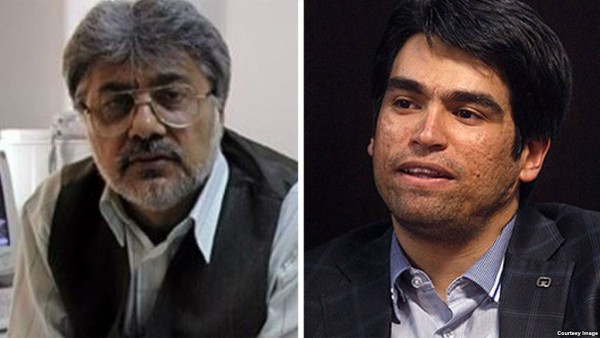
Iranian authorities arrested two prominent journalists on Monday as the head of the judiciary dismissed international condemnation of what appears to be a crackdown on writers and artists.
Isa Saharkhiz, a well-known independent journalist, was arrested by the Islamic Revolutionary Guards Corps (IRGC) on charges of “insulting the Supreme Leader, Ayatollah Ali Khamenei, and propaganda against the regime”, his son Mehdi said in a telephone interview from the United States.
Ehsan Mazandarani, managing director of the Farikhtegan newspaper, was arrested on security charges, the Tasnim news agency, which is linked to the IRGC, said. Staff at the paper confirmed the arrest to Reuters.
The IRGC answers directly to Khamenei and is not accountable to the government. It works with the conservative judiciary to counter perceived internal threats to the Islamic Republic.
The arrests came after two Iranian poets and a film-maker were sentenced to long prison terms and lashes last month on charges including “insulting sanctities and propaganda against the state”.
Film maker Keywan Karimi was sentenced to six years in prison and 223 lashes, and poets Fatemeh Ekhtesari and Mehdi Mousavi were handed 11.5 years and nine years in prison respectively, and 99 lashes each.
On Sunday, the PEN American Center, an organization advocating on behalf of writers persecuted because of their work, wrote to Khamenei asking him to nullify the sentences against the poets.
“We are deeply concerned by the inhumane sentences … for the simple act of expressing themselves by creating art. The act of writing poetry is no crime,” read the petition, signed by 116 poets and writers, on PEN’s website.
Ayatollah Sadeq Larijani, the head of Iran’s judiciary, dismissed allegations of human rights abuses in the Islamic Republic on Monday, and was quoted by state news agency IRNA as saying that “Tehran will never surrender to the human rights as interpreted by the West”.
“NOTHING HAS CHANGED”
IRGC forces arrested Saharkhiz in his home early in the morning and confiscated his electronic equipment, his son said, adding that he had already begun a hunger strike.
The veteran journalist, who served as deputy culture minister under the reformist President Mohammad Khatami, was previously arrested in 2009, shortly after widespread reformist protests gripped Tehran, and jailed for four years.
Karimi, the filmmaker, spoke to Reuters last week from Tehran, where he is on bail pending an appeal in the Supreme Court. He said he believed the appeal would be rejected.
“My conviction is a message to the Iranian art community that nothing has changed after the nuclear deal,” Karimi said.
Iran reached a deal with world powers in July to curb its nuclear program in return for an easing of economic sanctions, and many Iranians are optimistic the agreement will usher in a new era of prosperity and an end to international isolation.
But activists say the human rights situation is no better under President Hassan Rouhani, who championed the deal, than it was under his hardline predecessor Mahmoud Ahmadinejad, pointing to the high number of executions and political prisoners.
“There are thousands of hopes out there, but none of them are for us,” Karimi said.
REUTERS

Leave a Reply
You must be logged in to post a comment.